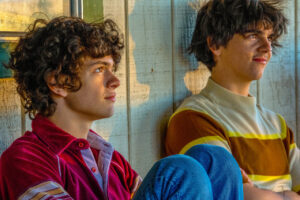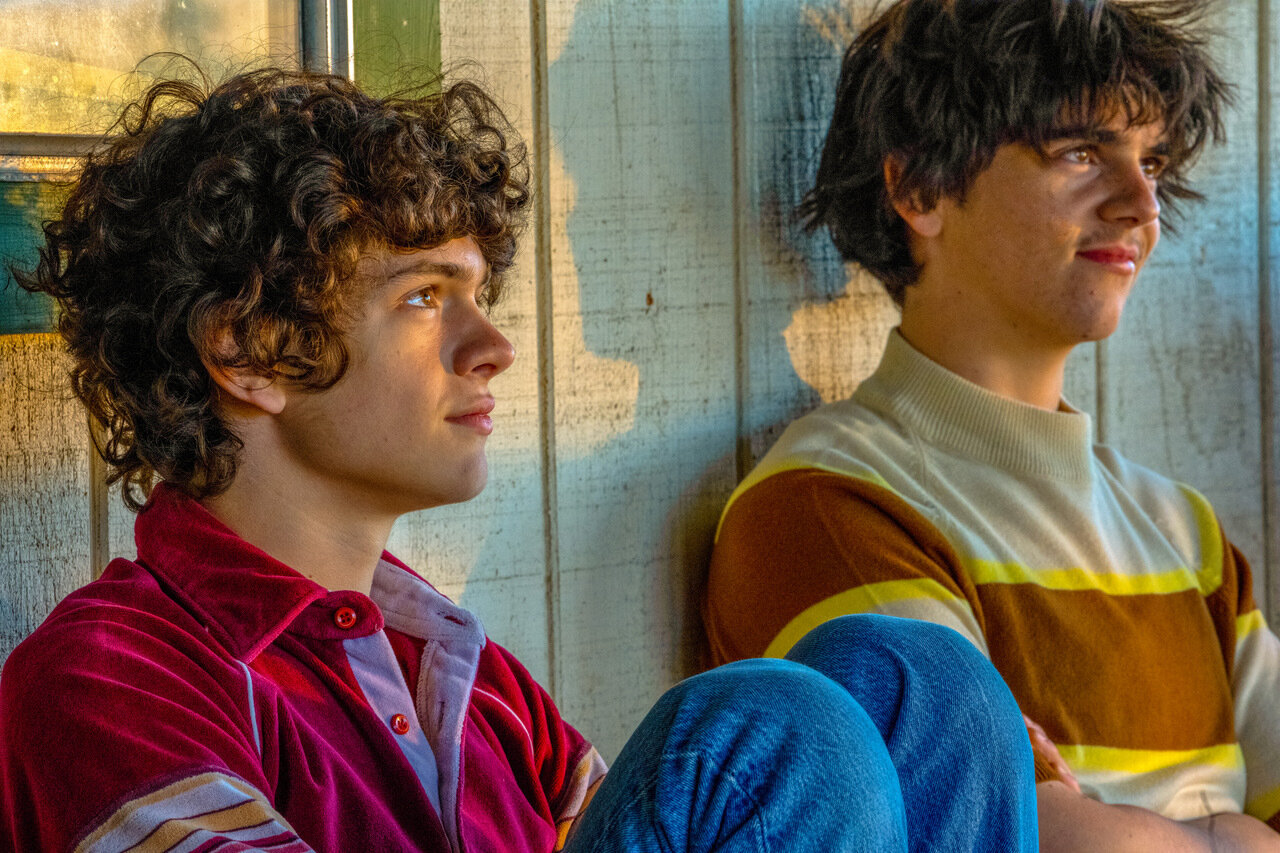Movie Info
Movie Info
- Director
- Bill Pohlad,
- Run Time
- 1 hour and 50 minutes
- Rating
- PG
VP Content Ratings
- Violence
- 0/10
- Language
- 2/10
- Sex & Nudity
- 1/10
- Star Rating
Relevant Quotes
When the Lord restored the fortunes of Zion, we were like those who dream.
X

Director Bill Pohlad, who gave us the 2014 music biopic Love & Mercy about Brian Wilson and the Beach Boys, again visits the music genre, but it is a very different story this time around. It is about the unusual success of a song artist decades after his first unsuccessful album is rediscovered, re-released to great acclaim, and the singer/writer’s grappling with guilt and remorse. Because the artist’s father and his sacrifice is an important part of the story, this is also a moving father-son tale—nor should we forget the part of a younger brother in it as well.
The story unfolds in a long flashback series of sequences near the town of Fruitland, a tiny rural village in Washington state where teenage Donnie (Noah Jupe) Emerson and older brother Joe (Jack Dylan Grazer) work on the farm of their father Don Sr. (Beau Bridges). The farm has grown from 600 acres into an establishment of over 1,760 acres, thus requiring the hard toil of all of the Emersons. They cut and hauled logs as well as grew and harvested wheat and other crops. While driving for hours the family tractor, Donnie listens to music on its radio. He feeds his love of music by learning to play a number of instruments—wind, piano, and guitar. He and Joe spend their nights playing together the songs that Donnie has written—Joe on the drums and Donnie the guitar. They call themselves the Emerson Brothers. Dad has a talk with Donnie about farming not being “easy work,” but also supporting his musical interest by asking “Do you want to put the money in the music?”—when Donnie replied yes, the father builds a log cabin for them to practice in and even footed the bill for the state of the art expensive recording equipment required for a studio. The brothers work on the farm during the day and spend their nights rehearsing and experimenting with their instruments and equipment.
In 1978 they began recording their own album named “Dreamin’ Wild,” but few expressed any interest in it, even at the small venues in the area where they played. Although their mother sold some in door to door sales, the excess albums wound up stored in boxes in their basement. Their father even turned a barn into a 300-seat performance theater dubbed Camp Jammin’, but this failed to help sell the album. Joe stopped playing (for a while) but Donnie tried to make it as a solo act, with Joe’s blessing, the latter admitting that it was fun for him but not a passion as with his brother. Donnie moves to the West Coast, his career becoming a continual struggle. In 1983 their father financed a solo album, recorded in LA, by taking out a loan on the farm at a high interest rate. When the album went nowhere, Don Sr. lost the mortgaged land, except for 65 acres. The son moves back to Washington, and
Only in 2008 when a record collector in the an Francisco Bay area bought a copy of the album at an antique store did things change for the Emersons. Will Louviere expected just another garage band, judging by the cover with the two brothers dressed in Presley-style white jump suits. Instead, he was impressed, excited, by the music, especially a song called “Baby.” Word spread via his and other blogs; one singer included a song Donnie named “Baby” on his album. Then Matt Sullivan Chris Messina) at Light in the Attic Records was so taken by the album that he traveled to meet Donnie, going with him to the family farm where Joe still lived and their parents near by. (By this time Don, as he now preferred to be called, was running a struggling recording studio with his wife Nancy (Zooey Deschanel), with whom he has sired two children.
From that first meeting and then when LIA remasters and re-issues the record to considreable acclaim, Joe (played by Walton Goggins as an adult) is far more excited than his brother Don (as he is now called, and played by Casey Affleck). The younger brother seems distant, almost unconnected with the joy evident on the faces of brother and parents. Bit by bit we discover this is not only the shock of being discovered at the age of 51, but also due to the many memories of the sacrifice of his father, and the guilt resulting from his previous failures. This continues even when the New York Times sends journalist Steven Kurutz (Rich Morris) to write an article about this unusual success story. The sensitive reporter gets along well with the family during the few days spent at the farm. It is his long article that informs the screenplay that filmmaker Bill Pohlad developed (the reporter is given co-writer credit).
It becomes evident that Donnie’s feelings are concerned with his brother as well as his father. This comes out when he is reluctant to join up again at a major Spokane theater to play again with his brother. Donnie had often urged Joe to play a little faster because he was usualy just a bit behind him. When they go to Seattle, matters do not go as well as expected. There are issues yet to be resolved between the pair.
The acting is excellent, with Noah Jupe and Jack Dylan Grazer doing their own singing in the earlier portion of the film. Affleck’s singing voice is dubbed, but the pain and pathos in his conversations with others is his own. Beau Bridgs as the loving father is at his best, especially in a couple of scenes with Donnie. Pohlad even brings together the actors playing Donnie as a youth and a middle aged adult in a magic realism scene in which the two sit side by side on the farm. One might wish that Zooey Deschanel had been given more to do, but she makes the most of her role as a supportive wife in the brief portions in which she appears.
This is not a glitzy show biz film but one that explores feelings of what might have been along with relationships strained and in need of repair. It takes us on a journey into the hearts of its characters and leads us to wonder about whether it is fate, chance, luck, or God that determines who rises to acclaim and who is passed by—and above all, the need for reconciliation with those closest to us if any success that comes can be enjoyed.
For a quick summary of this film see the 7-minute YouTube video “Light In The Attic Docs Presents: The Rock-n-Roll Farmers: Donnie & Joe Emerson.” Also available on line is Steven Kurutz’s story Fruitland and his NYT article “AT HOME WITH DONNIE AND JOE EMERSON: A Time Capsule Set to Song.”
This review will be in the August issue of VP along with a set of questions for reflection and/or discussion. If you have found reviews on this site helpful, please consider purchasing a subscription or individual issue in The Store.

